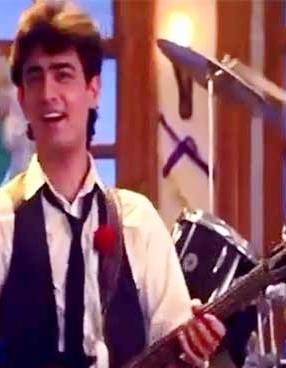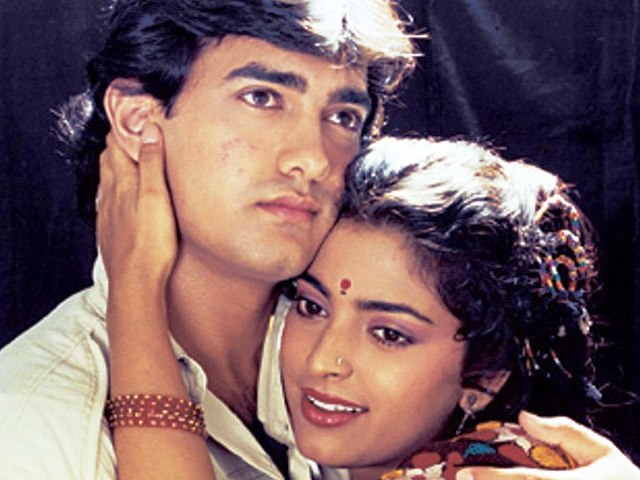|
|
||
|
Pro Tools
FILMFESTIVALS | 24/7 world wide coverageWelcome ! Enjoy the best of both worlds: Film & Festival News, exploring the best of the film festivals community. Launched in 1995, relentlessly connecting films to festivals, documenting and promoting festivals worldwide. We are sorry for this ongoing disruption. We are working on it. Please Do Not Publish until this message disappears. For collaboration, editorial contributions, or publicity, please send us an email here. User login |
Siraj SyedSiraj Syed is the India Correspondent for FilmFestivals.com and a member of FIPRESCI, the International Federation of Film Critics. He is a Film Festival Correspondent since 1976, Film-critic since 1969 and a Feature-writer since 1970. He is also an acting and dialogue coach. @SirajHSyed  Aamir, Nasir, Tahir, Tariq, Mansoor, Amjad: Movies, Masti, Modernity, Flashback 8
Aamir, Nasir, Tahir, Tariq, Mansoor, Amjad: Movies, Masti, Modernity, Flashback 8 To remind you, Aamir is indeed Aamir Khan, Amjad is definitely Gabbar Singh, and the triple M above is to acknowledge that it was Akshay Manwani’s biographical book on the cinema of Nasir Hussain that got me delving into the period of about 15 years, when I interacted with the Hussain Khans (first five) and the bare Khan (last, but the most imposing personality). Actually, Mansoor did not use his middle name, so he can be called a ‘Khan’ too! Tahir stands for Nasir’s (younger) brother, Tahir Hussain. Nasir Hussain (1931-2002) was already a in my favourites list much before I met him. Now, the story of my interactions with him is picked-up from the last paragraph of Flashback No. 7. Meanwhile, a young man called Aamir Khan was proving a good assistant to his uncle on films like Manzil Manzil and Zabardast (he could in no way be held accountable for their failure at the box-office), had even acted in films like Holi (1984) and Raakh (delayed release in 1989). His uncle, Nasir Hussain, was planning to make a big film with him in the lead. Cousin Mansoor, for his part, was a techie, having established a pioneering video studio in Mumbai. Though Mansoor was credited as Associate Director on Zabardast (produced by Mushir-Riaz), nobody had prophesied or even envisioned, at least at that stage, that Mansoor would direct Qayamat Se Qayamat Tak, and it would make a star out of Aamir Khan. My earliest memory of Aamir is of him as a little boy, listening in to my conversations with his father, Tahir Hussain Khan, while we were discussing Anamika, at their house. He was cute, and somewhat interested in the filmy goings-on, but TahirSaahab told him to do his home-work instead. My last association with the TV Films banner was (again) in a bit role, in his film Dulha Bikta Hai, directed by my friend Anwar Pasha. When we were watching a preview, the audience went gaga over the film, though I had my reservations. TahirSaahab chided Raj Babbar, the lead-actor, who was a bit of a star those days (early 80s) for being un co-operative during the filming, but collecting encomiums now, for his performance.
Quite sometime later, Qayamat Se Qayamat Tak was being shot, and naturally, the subject of great industry curiosity. Nasir Hussain had been ill and was persuaded by Mansoor to stick to writing, while he would direct QSQT. Aamir had been paired opposite Juhi Chawla in this umpteenth re-working of Romeo and Juliet. Bobby and Love Story, both inspired by the Shakespeare classic and both starring newcomers, had jingled at the box-office, so it was a safe bet, as safe as they come. Newcomers in the cast, but two major deviations from the other two: a new(ish) director and a first-timer in the NH Films’ camp, the brothers’ duo of Anand-Milind as music composers. Nasir let RDB go, but held on firmly to Majrooh Sultanpuri to pen the poetry. I was summoned to the office, bang opposite Mehboob Studios, on Hill Road, Bandra. Seated in the cabin were NasirSaahab and Mansoor Khan, who I had never formally met. Introductions done, Nasir came to the point. “Mansoor is making Qayamat Se Qayamat Tak, and a large art of the shooting is over. He grew up on Yaadon Ki Baaraat and Hum Kiseese Kum Naheen. Now he wants to do a similar number in this film. The song has been recorded and it s a college valedictory programme, where the hero sings about the uncertain future, but with a lot of music and melody, dance and audience participation, as we had done in my films earlier. He asked me to call you, so here we are. Can we do it?” By that time, I had given up this ‘vocation’. For a year, edited PLAYBACK (India’s first and only music monthly in English) and during 1987-88, I edited TV&Video World, the title of which is self-explanatory. During 1988-89, I was the weekly media page editor at the Jansatta Hindi daily and in 1989-90 I was compiling the TV, video and music page in Screen Weekly. These credentials were far from any required to assemble a few hundred youngsters to sing and dance along with Aamir Khan and others in QSQT. Moreover, I was a making a reasonable packet as a television actor and radio, stage and TV performer. Nasir Hussain and Mansoor Khan would have to tempt me real hard to put in two weeks of untiring effort into this mammoth task to convince me. They couldn’t. Mansoor was insistent and adamant, but Nasir Hussain struck a practical, albeit discordant note. “Look, the film is far from ready and we have gone way over-budget. Doing it Siraj’s way, on his terms, is going to cost a lot more than I can afford. Find some other way.” And that was final. Never mind if the only son was distraught at his father’s economic ground reality check.\ I didn’t do it. They shoe ‘Papa kehtey haen’ without any help from me. That it was still a runaway hit is something I don’t begrudge at all. As was to be expected, a preview was arranged, and I was invited to Dimple minuet, owned by Rajendra Kumar. That is where I had seen Love Story, Kumar’s production, with which I had been involved. What was this unfolding? Déjà vu? A gawky, awkward Aamir, some great music, a fresh as dew Juhi Chawla and ....nothing? I slipped away in the interval, lest I was forced into praising the film in a post-screening probe.
A few days later, I was introduced to Juhi Chawla at a party. I told her this was her first film that I had seen (only a couple of Chawla’s films had been released till then) and that she was great in QSQT. “Thanks a ton. But what else did you like?” I hesitated, “The music for sure. Terrific.” “And Aamir.” I was cornered. “Aamir is awkward. Tentative. A bit gawky.” She was stunned, “Oh no. Then how will the film run? Films run on the impact made by the hero, and not by the heroine!” I tried to console her, “Why not the heroine? Besides, there are a couple of heavenly duets...” Juhi Chawla was not happy, and probably not listening any more. Indeed, based on the first half as projected in that preview theatre that day, I had serious doubts about the success of QSQT. Destiny was to prove me wrong, and how. Finding few takers in its initial marketing rounds, Qayamat Se Qayamat Tak (From Doomsday to Doomsday) was heaven at the turnstiles and pulled out Nasir Hussain Films from the doldrums. A new generation had found new peers, Aamir Khan, Juhi Chawla, Mansoor Khan and Anand-Milind. Nasir Hussain and Majrooh Sultanpuri, in the evenings of their lives, had worded magic in the last decade of the twentieth century. Coming-up: Flashback 9 02.04.2017 | Siraj Syed's blog Cat. : Anand-Milind Dimple Dulha Bikta Hai Juhi Chawla love story Papa kehtey haen Qayamat Se Qayamat Tak Rajendra Kumar PEOPLE
|
LinksThe Bulletin Board > The Bulletin Board Blog Following News Interview with EFM (Berlin) Director
Interview with IFTA Chairman (AFM)
Interview with Cannes Marche du Film Director
Filmfestivals.com dailies live coverage from > Live from India
Useful links for the indies: > Big files transfer
+ SUBSCRIBE to the weekly Newsletter DealsUser imagesAbout Siraj Syed Syed Siraj Syed Siraj (Siraj Associates) Siraj Syed is a film-critic since 1970 and a Former President of the Freelance Film Journalists' Combine of India.He is the India Correspondent of FilmFestivals.com and a member of FIPRESCI, the international Federation of Film Critics, Munich, GermanySiraj Syed has contributed over 1,015 articles on cinema, international film festivals, conventions, exhibitions, etc., most recently, at IFFI (Goa), MIFF (Mumbai), MFF/MAMI (Mumbai) and CommunicAsia (Singapore). He often edits film festival daily bulletins.He is also an actor and a dubbing artiste. Further, he has been teaching media, acting and dubbing at over 30 institutes in India and Singapore, since 1984.View my profile Send me a message The Editor |





























